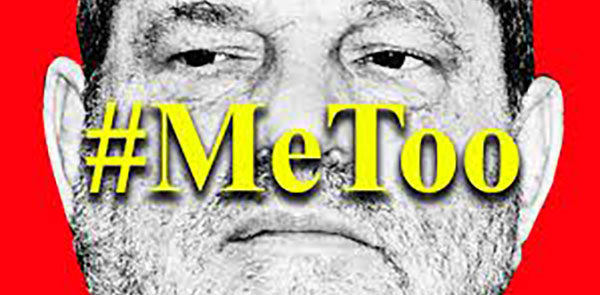INTRODUCTION
In the last year, a national discussion of sexual harassment in the workplace has been underway. In the wake of allegations against Harvey Weinstein surfacing in October 2017, social media served as a platform for discussing sexual harassment and exposing the extent of individuals’ experiences with the issue. The emergence of a culture shift accompanied this movement, as it conveyed to people that they are not alone in having experienced harassment. The national discussion has been joined by a dramatic increase in complaints of sexual harassment in 2018. That inevitably has increased the need for investigations of such complaints. Not only the volume, but the nature, of investigations has changed in the past year as well. Those changes include pressure to conduct investigations more quickly, increased public scrutiny, and the practical complications caused by individual employees changing their behavior in response to #MeToo in ways that may create new issues in the workplace (as well as legal exposure).
NEW PRESSURES ON INVESTIGATORS
The Need to Understand Crisis Management
Investigations often begin because there is a crisis in the workplace but, before #MeToo, it was rare when an investigator had to truly understand crisis management. Those days are long gone. With financial performance and reputation on the line, it is not surprising that companies are now treating allegations of harassment like a corporate crisis. Understanding the crisis management tools that the employer is likely to employ will help the investigator anticipate and deal with pressures that can result in this context.
The model for managing corporate crisis is fairly well agreed upon and established, and generally follows the strategy developed many years ago by Johnson & Johnson after cyanide was discovered in Tylenol in 1982. From this corporate crisis, there emerged the four basic tenets of modern crisis management: 1) Don’t delay; 2) Apologize; 3) Be transparent; 4) Be accountable. The first and third of these is likely to impact investigations most. An investigator cannot “delay,” and timeliness is going to mean even more than it typically does in this context. What is “transparent” in the world of workplace investigations, where allegations, findings and corrective/ remedial actions are often kept confidential? This is raised more and more, as employers outside of the public sphere are beginning to request reports that can be shared with parties, employees, and even the public. Also, an investigator’s work may well garner more media attention.
The Requirement to Be Media Savvy
The media has caught on to the investigation as a newsworthy part of the harassment landscape. We are seeing our names and the names of our firms in newspapers with increasing frequency. Before #MeToo, a case might make its way from complaint to consequence with little to no discussion of the investigation (or investigator). This is no longer the case, and investigators may be approached by reporters for information about an investigation – before or after the work is done. It is important to understand the organization’s media response plan and for the investigator to work within the guardrails defined by the company.
The Increased Pressure on Timelines
These pressures we have just discussed are exponentially magnified when it comes to timelines for conducting an investigation. If an ordinary harassment investigation used to take four (4) to six (6) weeks to complete, be prepared to receive major pushback on that timeline. This pressure is probably the most difficult one. Everyone involved feels a loss of control. Often the fear that accompanies this loss of control is transferred to the attorney investigator. Clients pressure investigators and counsel to “get this thing over with;” complainants cannot sleep at night until they know that “they can get closure;” and respondents are on pins and needles waiting to see if this situation is going to cost them their careers. Investigators receive more pressure to investigate quickly, if not instantaneously, or to short-circuit the respondent’s opportunity to respond to the evidence. Regardless of time pressure, the investigator must conduct a thorough and impartial investigation to safeguard the process.
PRACTICAL REALITIES: POLARIZATION OF MEN AND WOMEN AND DISCRIMINATION CLAIMS
Newton taught us that for every action, there is an equal and opposite reaction. The backlash to the backlash is here. Will what started as an “it’s-about-time” campaign have the opposite effect? Will male colleagues view women as a liability? With the revelation of years of sexual exploitation bringing about so much positive change, an unfortunate ripple effect is that some men are afraid of being accused of misconduct. And how about the impact on hiring and supervising practices. Some men are saying privately they will not hire any more women or will no longer meet privately with them. With male managers and executives vowing to change the way they interact with young women, the new reality is here. These dynamics are resulting in increasingly common “backlash” claims. What does this mean for an investigation of a client’s workplace? To start, it means that instances of exclusionary behavior can be important in assessing gender-based discrimination or retaliation claims.
CONCLUSION
As this discussion makes clear, in the wake of #MeToo, the importance of conducting skillful and thorough workplace investigations is more important than ever. The demands upon clients to demonstrate that they addressed a harassment complaint fairly will come from multiple quarters, with many demanding immediate action. In addition to complainants, respondents, and the larger workforce, the public is watching. And, as always, courts will continue to address the adequacy of any response to a complaint. In fact, with the uptick in complaints in the last year, courts may well have more opportunities than ever to do so in the coming years.

